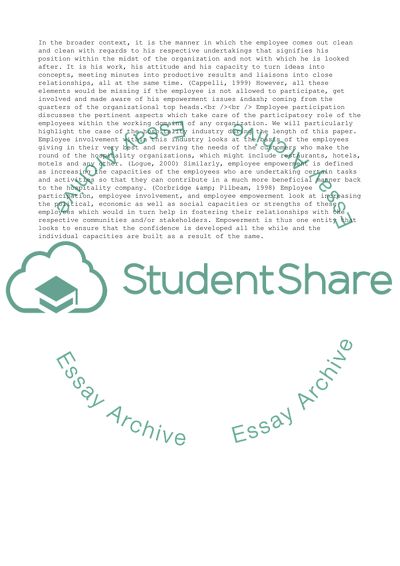Cite this document
(Employee Relations and Development in Hospitality Industry Term Paper, n.d.)
Employee Relations and Development in Hospitality Industry Term Paper. Retrieved from https://studentshare.org/management/1713948-employee-relations-and-development
Employee Relations and Development in Hospitality Industry Term Paper. Retrieved from https://studentshare.org/management/1713948-employee-relations-and-development
(Employee Relations and Development in Hospitality Industry Term Paper)
Employee Relations and Development in Hospitality Industry Term Paper. https://studentshare.org/management/1713948-employee-relations-and-development.
Employee Relations and Development in Hospitality Industry Term Paper. https://studentshare.org/management/1713948-employee-relations-and-development.
“Employee Relations and Development in Hospitality Industry Term Paper”. https://studentshare.org/management/1713948-employee-relations-and-development.


